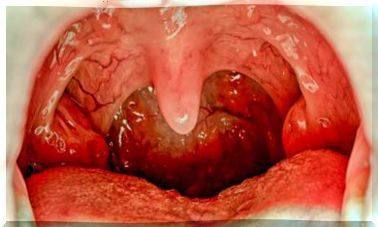What Does Science Say About Caffeine?
What does science say about caffeine? First, there is high interest, both public and scientific, in the adverse health effects of regular consumption of caffeinated beverages.
However, the studies are not conclusive. Only one cause-effect association related to caffeine consumption on negative outcomes during pregnancy is known.
What science says about caffeine, especially through epidemiological studies, is that this substance has a beneficial effect in reducing the risk of numerous chronic diseases.
But, to understand its effect on health, it is first necessary to know where this active compound comes from.
Where does caffeine come from?
Caffeine is the most widely consumed stimulant throughout the world. Its main sources are:
- Kola nuts ( Cola acumina te).
- Cocoa beans ( Theobroma cacao ).
- Yerba mate ( Ilex paraguariensis ), consumed in some South American countries.
- Guarana blackberries ( Paullinia cupana ).
- Roasted coffee beans ( Arabica and Robusta ) and tea leaves (Camellia sinensis) , its main dietary sources worldwide.
In addition to the above sources, caffeine is found in some pain medications, carbonated and energy drinks, as well as dietary supplements.
The concentration of caffeine varies a lot between the drinks that contain it, however, coffee is the drink with the highest concentration with 100 mg / cup. In second place is mate, which averages 78 mg / 8 oz, followed by black tea at 55 mg / 8 oz.

Caffeine absorption and metabolism
Once ingested, caffeine is rapidly and fully absorbed from the gastrointestinal tract (bioavailability is 100%) to be metabolized in the liver to form 3 important metabolites:
- 3,7-dimethylxanthine.
- 1,7-dimethylxanthine.
- And finally 1,3-dimethylxanthine.
What does science say about caffeine once it is absorbed? This compound exerts physiological effects throughout the body. We detail them below.
Physiological mechanisms of caffeine
In the first place, caffeine works as an antagonist to the adenosine receptor in the brain, since, having a molecular structure similar to adenosine, it has the ability to occupy the receptors for it (mainly A1 in the hippocampus and localized A2 in brain areas rich in dopamine).
By blocking the binding of adenosine in neurons (which induces sleep), it stimulates the activity of the nentral nervous system (CNS). In general, low intakes of this substance (between 20 and 200 mg per day) produce positive effects on the feeling of well-being, alertness and energy.
However, higher doses can trigger nervousness and anxiety, especially in people who are not used to drinking beverages rich in it.
Caffeine consumption and Parkinson’s disease
Parkinson’s disease arises after the progressive reduction of dopaminergic neurons in the substantia nigra.
Caffeine, by improving the performance of the dopaminergic system, thanks to its antagonistic effect on adenosine receptors , stimulates the release of dopamine, reducing the deterioration of fine and gross motor activities.

Caffeine consumption on obesity and diabetes
What the science says about caffeine and its effect on weight loss is extremely interesting. In this context, this substance has shown activity on metabolic rate, energy expenditure and thermogenic activities (especially on lipids).
The consumption of 300 mg / day of caffeine makes it possible to inhibit the AMP-phosphodiesterase cycle to increase cyclic AMP and, by antagonizing the adenosine receptors, the release of norepinephrine is increased; effects that induce weight loss by increasing lipolytic activity.
Additionally , numerous studies suggest an inverse relationship between the consumption of caffeine from coffee and the risk of developing type 2 diabetes. In those individuals who consume at least 6 cups of coffee a day, the risk of developing the disease was 35% lower. Meanwhile, in those who consume 4 to 6 cups, the risk reduction was 28%.
Effect of caffeine on mineral absorption
When you consume a drink that contains caffeine, along with the main meals, it is difficult to absorb important minerals such as iron and calcium.
Some cohort studies have reported that high doses of caffeine increase urinary calcium excretion, which increases the risk of bone abnormalities. Therefore, the recommendation is to moderate caffeine consumption to:
- 4 cups of black coffee.
- 3 cappuccinos.
- 6 cups of coffee.
Note: it is necessary to accompany these recommendations together with an adequate consumption of calcium.
Caffeine in pregnancy and lactation
The reason why caffeine is contraindicated during pregnancy and lactation is because it has the ability to cross the placenta and stimulate the metabolic rate of the fetus.
High doses of caffeine ingested in pregnancy are associated with the development of congenital abnormalities, miscarriages, low birth weight and alterations in the behavior of the neonate.
Also, caffeine is transferred directly through breast milk, causing irritability and sleep disturbances in the baby. Therefore, the maximum recommended caffeine intake during pregnancy is less than 200 mg per day.

What Science Says About Caffeine and Its Health Impact
Finally, the impact that caffeine has on the body is known. Being an ingredient present in the most consumed beverages in the world, it is important to know the mechanisms and effects it exerts on the body, as well as the recommended doses to avoid alterations and take full advantage of its benefits.
Most human studies suggest that moderate consumption (less than 400 mg / day) provides positive effects on body weight, neurodegenerative and metabolic diseases.
However, it is important to note that this substance is contraindicated during pregnancy and lactation and, in the same way, it is convenient to control its diuretic effects.









